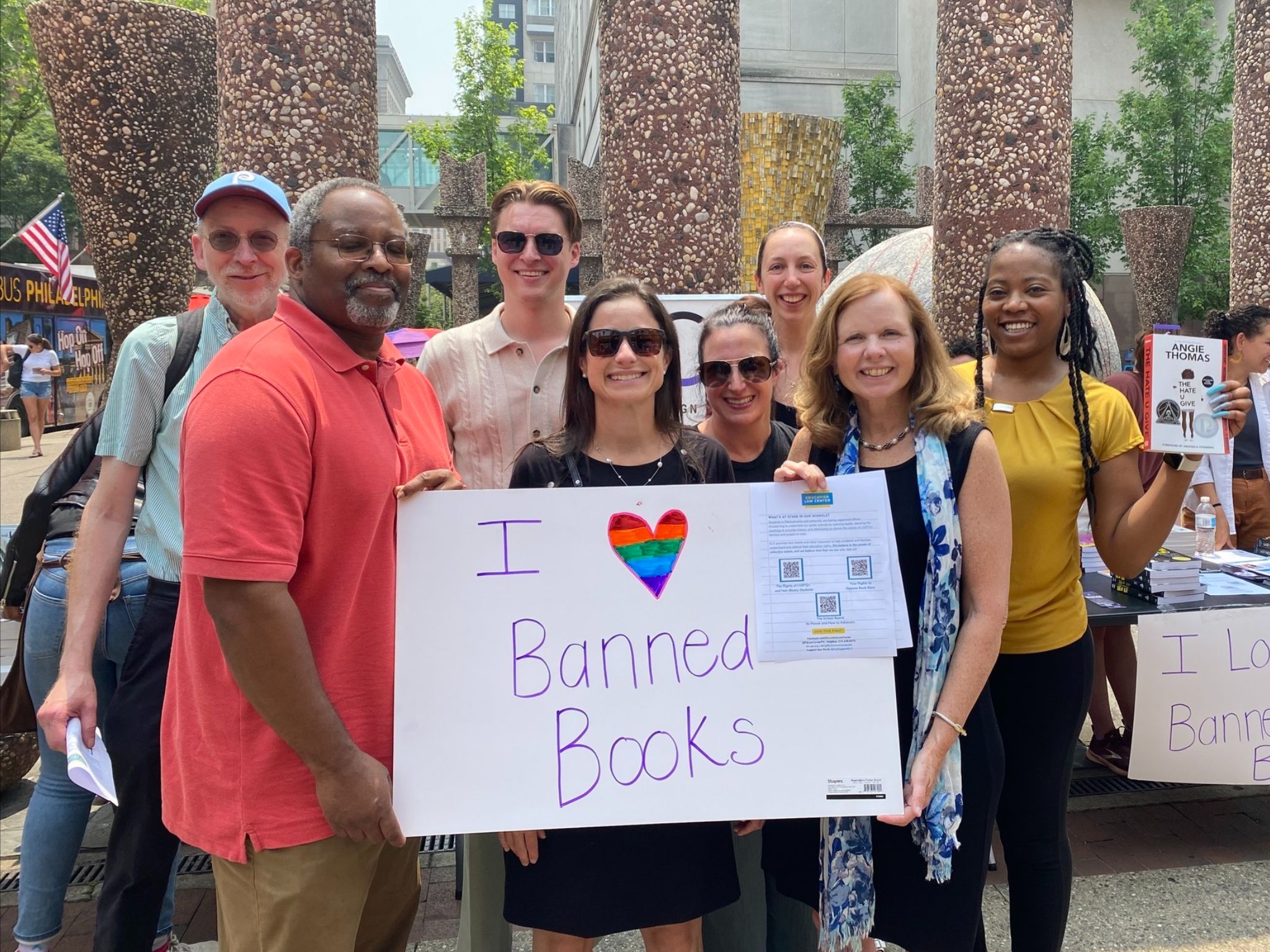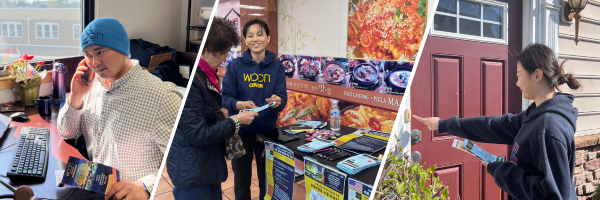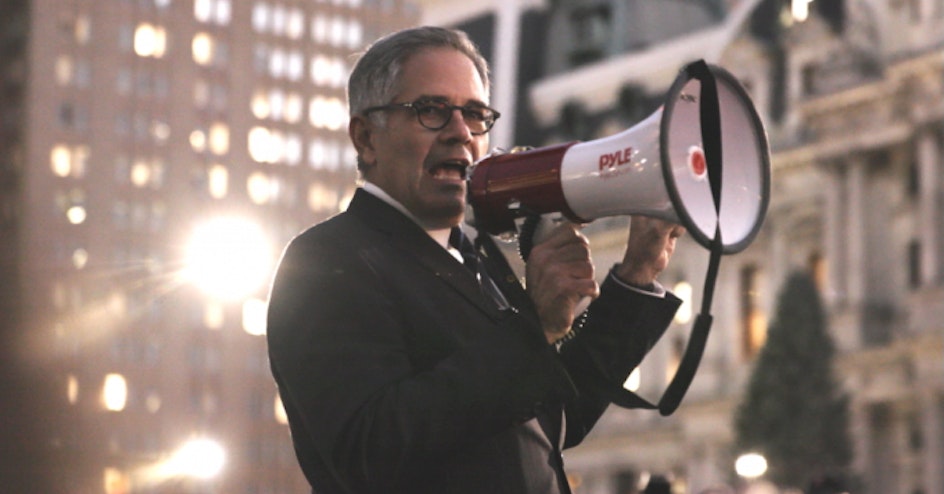| Message from the Executive Director I’ll admit, I’m still reeling from the outcome of the recent election. I’m scared about the new administration’s impact on reproductive, trans, and immigrant rights, and worried that their policies will exacerbate the transfer of wealth and power from the most marginalized to the billionaire class. It is a lot to carry. I have spent the past few weeks making intentional space for grief, rest, and connection with friends and family. I hope you have been doing the same. For while the challenges before us are legion, we can’t and won’t succumb to despair. Angela Davis tells us, “You have to act as if it were possible to radically transform the world. And you have to do it all the time.” GJF’s Board Chair calls it purpose, the vision that guides us even as we navigate disappointment and setbacks. As an organization, we are living our purpose more than ever before, and I am confident that we are ready to meet this moment. We first became a private foundation in 2006, but it was not until 2018, after the sale of our historic building, that the organization truly embraced grantmaking as its focus. In the six years since, we have made over $2.5 million in grants – more than twice our total grantmaking from 2006 to 2018. By the end of 2024, we will have made over $570,000 in grants – a new annual record. In addition to spending well in excess of the 5% IRS minimum on charitable expenses, we are able to do this because of our institutional funding partners who have helped us expand this work. As we build momentum, we invite you to join us in championing gender justice. You can make a one-time gift or sign up to become a recurring donor here. It is true that dark times are ahead of us. But it is also true that purposeful progress is still possible, especially at the local level. Seven states voted to protect abortion rights in the last election. Closer to home, PA will likely begin using state Medicaid dollars to fund abortions because of the work of grantee Women’s Law Project. And, after years of advocacy, our featured grantee, Education Law Center, succeeded in pushing the School District of Philadelphia to change dress code rules which unfairly targeted Black girls and undoubtedly contributed to the school-to-prison pipeline. In our last newsletter, I said that no single election would overturn the trend of women, trans, and gender nonconforming people being harmed and/or ignored by political leaders from all parties. I wrote that sustained organizing, activism, and public engagement would be required, regardless of the outcome. I believe this now more than ever. We look forward to working closely with our grantees and communities to protect our rights and fight for our collective liberation. We hope you will find the spaces in your communities where you can do the same. Executive Director |
| Grantee Spotlight: Education Law Center Since 1975, Education Law Center – PA (ELC-PA) has worked to make Pennsylvania’s public education system more equitable. Their staff of 15 people in Philadelphia and Pittsburgh advocate for public policies, drive impact litigation, and organize communities to make progress towards gender, racial, and disability justice in education systems across the state. ELC-PA had a big win at the beginning of this school year: a new dress code for the Philadelphia School District, which has nearly 200,000 students enrolled. The new dress code declares that “students have the right to dress in a manner that celebrates their racial, cultural, religious, and gender identities, [and] is reflective of their gender expression (including gender neutrality).” Black girls are disproportionately disciplined for the way they dress or wear their hair, but this new dress code enshrines students’ rights to self-expression, including wearing protective hairstyles such as braids, locs, and afros. |
 Staff of the Education Law Center at an event to support banned books. Photo courtesy of Education Law Center. |
| ELC-PA won this dress code policy change by joining with allies POPPYN, Advocates for Youth Justice, Advocates Transforming Youth Systems, we.REIGN, and Youth United for Change to elevate the experiences and recommendations of students, particularly Black girls, and to conduct a broad communications campaign to make the case for dress code change as a strategy for making schools safer for Black students as well as trans and nonbinary students. In their Inclusive Schools and Honest Education Initiative, ELC-PA fights back against school policies that discriminate against trans students, book bans, and other policies that make schools hostile spaces for LGBTQ+ students and Black and Brown students. ELC-PA is a leading member of the Pennsylvanians for Welcoming and Inclusive Schools (PAWInS) coalition, which builds power to defeat oppressive policies at all levels. To learn more about ELC-PA, visit their website or follow them on Facebook or Instagram. |
| Issue Spotlight: Abortion Access in PA While we are fortunate that abortion is legal in Pennsylvania, it remains inaccessible to many people because of state restrictions and availability of care. Pennsylvania is one of 28 states that limit abortion care based on gestational duration, or how far along someone is in a pregnancy. In Pennsylvania, abortion is illegal after 24 weeks of pregnancy unless the physical health of the pregnant person is at risk. Abortion care is also restricted by age. Pennsylvania is one of 36 states that require people under 18 years old to involve their parents in order to receive abortion care. Young people seeking abortions who can’t get parental consent must go before a judge to get a court order. Access to care is also limited by the availability of clinics. In a state of nearly 13 million people, there are currently only 18 abortion providers. In contrast, when Roe v. Wade was decided in 1973, there were more than 145 providers in the state. There are no abortion care providers in 82 percent of Pennsylvania counties, so people travel significant distances to get care. Additionally, abortion care providers must deliver state-mandated counseling and give people seeking abortions a booklet that includes significant misinformation and is designed to discourage people from having abortions. After a person seeking abortion care has an initial appointment with a clinic, they must wait 24 hours before they are allowed to receive abortion care. |
 Planned Parenthood PA Advocates Executive Director Signe Espinoza speaking in Harrisburg. Photo courtesy of Planned Parenthood PA Advocates. |
| Perhaps the greatest barrier to care is cost. Although advocates are fighting to change the law, abortions are not currently covered by Medicaid, nor are they included as a covered service for Marketplace plans offered in Pennsylvania. This presents a tremendous burden for low-income birthing people, who are less likely to be able to afford a procedure that can cost thousands of dollars. Gender Justice Fund grantees Women’s Law Project, Planned Parenthood Pennsylvania Advocates, New Voices for Reproductive Justice, and Abortion Liberation Fund of PA are at the forefront of reproductive justice advocacy and organizing in Pennsylvania. Their work on abortion care focuses on combating restrictions, meeting people’s needs in the current system, and expanding rights and access to abortion care. To learn more, visit the Commonwealth of Pennsylvania’s Freedom to Choose page for facts on abortion care in Pennsylvania, Women’s Law Project’s one-page factsheet on abortion in Pennsylvania, and Abortion Liberation Fund of PA’s Abortion in Pennsylvania Toolkit, which is available in English and Spanish. |




